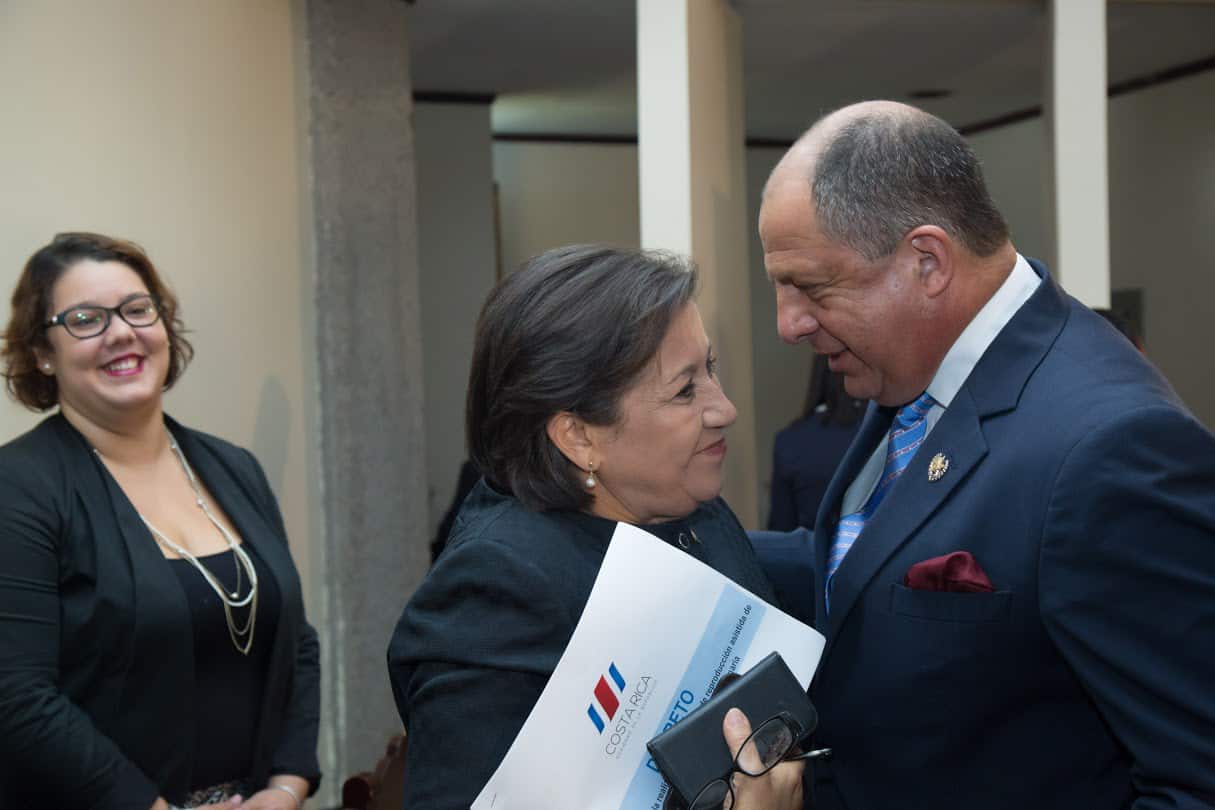President Luis Guillermo Solís presented draft language Thursday morning that would legalize in vitro fertilization 15 years after the procedure was banned in Costa Rica by the Constitutional Chamber of the Supreme Court. The draft decree comes three years after the Inter-American Court of Human Rights — based in San José — ruled that the ban violated the human rights of infertile couples trying to conceive.
Costa Rica is the only country in the Western Hemisphere to ban the fertility procedure.
The draft decree will be presented to the Costa Rican Doctors and Surgeons Association and the Social Security System for review. President Solís framed his decision to present the draft within the bounds of Costa Rica’s dependency on international legal and arbitration bodies for its national security.
“Costa Rica is a country that defends human rights,” Solís told reporters during a news conference Thursday morning. “Costa Rica cannot stand more condemnations for human rights issues.”
“This will return us to the highest human rights standards,” he said.
The draft decree — which has yet to be signed — would limit the number of fertilized eggs that could be used per cycle to two. The Social Security System, known as the Caja, would administer the procedure and the Health Ministry would oversee its application. Once signed, the decree would allow the Caja two years to offer the procedure. The Caja would have six months to draft technical norms and any protocols for the fertility procedure’s application in public or private health care facilities.
Casa Presidencial lawyer Marvin Carvajal said that the decree’s language was not discriminatory and would not limit access to the procedure based on the adult woman’s marital status, sexuality or age.
The draft language would ban the following things regarding fertilized eggs:
- Destruction
- Commercialization
- Experimentation
- Cloning
- Genetic alterations
- Genetic selection for specific traits
- Insemination post-mortem
Solís and several members of his Cabinet had said that if the Legislative Assembly failed to pass a bill regulating the fertility procedure he would take action. When the legislature ended its most recent session on Aug. 30, Solís was left with the decision to make good on his pledge to issue the order or face the human rights court on Thursday to explain why Costa Rica had missed another deadline. The president told reporters Thursday that he had the “upmost” respect for the legislature and said that timing forced his hand.
The court ruled in November 2012 that the Costa Rican government had violated the rights of infertile couples by banning the procedure. The government will present the draft decree to the human rights court Thursday afternoon for the justices to review.
Watch the news conference in Spanish here:






